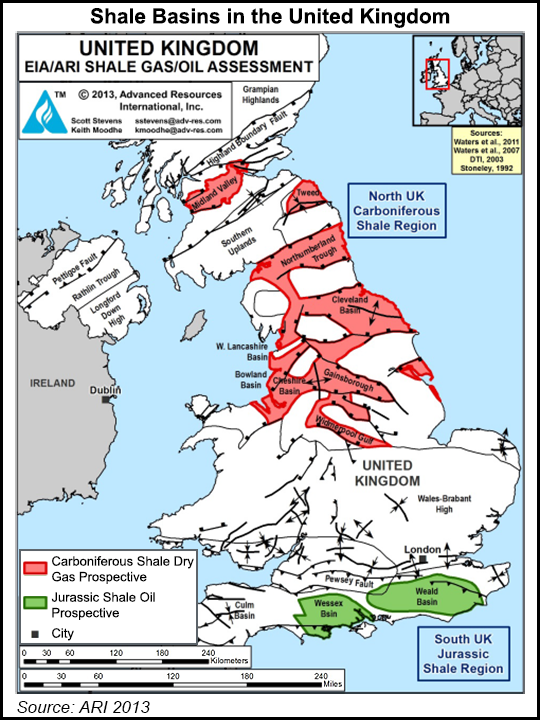UK Shale Development Dealt Blow After Cuadrilla Rejections
The future of shale development in the United Kingdom suffered a serious setback last month after a government panel in northwest England denied Cuadrilla Resources Ltd. permission to drill up to eight test wells at two separate locations in the Borough of Fylde.

Last Monday, the Lancashire County Council Development Control Committee denied Cuadrilla an application to drill up to four test wells at a site called Preston New Road, in the parish of Westby-with-Plumptons, “on the grounds of noise and visual impact.” The committee also rejected a separate application by Cuadrilla to monitor its operations on the site “because of impact on the landscape.”
The committee also rejected in June Cuadrilla’s application to drill up to four test wells at another site, Roseacre Wood. The committee said it rejected the company’s application there because it “would have an unacceptable and potentially severe impact on the road network, both in terms of traffic and the increased danger to other road users.”
Cuadrilla, which is based in Lichfield, Staffordshire County, has been seeking to drill in Fylde for more than a year (see Shale Daily, Feb. 7, 2014). The company said it was “surprised and disappointed” by the rejection, particularly because it followed “a positive recommendation by the council’s planning officers.” It is considering an appeal.
“We remain committed to the responsible exploration of the huge quantity of natural gas locked up in the shale rock deep underneath Lancashire,” Cuadrilla said. “We will now take time to consider our options regarding an appeal for Preston New Road, along with also considering appeals for the planning applications recently turned down, against officer advice, for monitoring and site restoration at Grange Hill, and [the] decision to refuse the Roseacre Wood application.”
The wells were to target the UK’s Bowland-Hodder Shale. In 2013, the British Geological Survey said there was a 50% chance the formation holds 1,329 Tcf of natural gas. It also released high and low estimates for the play, at 2,281 Tcf and 822 Tcf, respectively (see Shale Daily, June 28, 2013).
Support for shale development in the UK has been waning. According to a YouGov/Sunday Times poll conducted in May, 43% of respondents said Britain should not extract shale gas, while 32% supported drilling and 25% had no opinion. By comparison, a poll conducted in January found 41% were opposed to shale gas extraction, 35% supported it and 24% had no opinion.
The May poll also found that 49% of respondents would oppose hydraulic fracturing (fracking) if it went ahead in a nearby town or village, but the opposition slipped to 47% if their local council received £100,000 ($156,100) from such a drilling scenario. Opposition fell to 44% and 40% if respondents’ local council received £1 million ($1.56 million) and £10 million ($10.56 million), respectively.
Meanwhile, the poll showed 27% of respondents would support fracking in a nearby town or village with no compensation, but support ticked up to 30%, 32% and 36% under the aforementioned scenarios for compensation.
© 2024 Natural Gas Intelligence. All rights reserved.
ISSN © 2577-9877 | ISSN © 2158-8023 |
